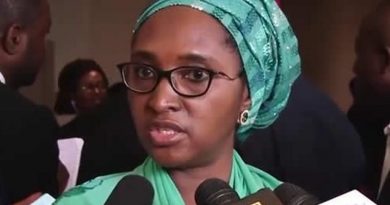Mali: France and EU partners expected to announce military withdrawal
France and its European partners are expected to announce their military withdrawal from Mali under pressure from the military junta.
French President Emmanuel Macron is widely tipped to make an announcement to that effect on Wednesday evening or Thursday, following a mini-summit in Paris with the heads of state of Sahelian countries — Niger, Chad, Mauritania —, several West African countries, and senior EU officials and ahead of a two-day EU-African Union summit in Brussels kicking off on Thursday.
Government spokesperson Gabriel Attal stressed on Tuesday that the status quo is “not possible in a very deteriorated context in Mali, with the seizure of power by a junta, the refusal to apply a timetable for the return to democratic order which had been announced and the use of a private Russian militia, Wagner, reputedly close to the Kremlin”.
Over the weekend, Estonian Defence Minister Kalle Laanet had told reporters that “it is impossible to continue under these conditions, all the other allies think the same”.
About 4,800 French troops are deployed in the Sahel region, with about half of them in Mali, as part of Opération Barkhane. The military operation was launched in 2014 following a request from the Malian government as jihadist groups were getting closer to capital Bamako.
Also on the ground are 800 troops from the European Task Force Takuba with soldiers from the Czech Republic, Denmark, Estonia, France, Italy, Hungary, the Netherlands, Portugal, and Sweden.
Hampered and vilified for several weeks by the Bamako junta that came to power after two coups d’état, France has intensely consulted its allies to decide on the future of their action in Mali, after nine years of uninterrupted anti-jihadist struggle in which it had finally succeeded in involving European partners.
Today, Takuba’s Europeans as well as the British and American partners, who are contributing to the effort in Mali, seem to have overcome certain disagreements, in particular on the risk of leaving the field open to Russian influence in Mali, according to several sources interviewed by AFP.
This united front was a political imperative for the French presidency, with a double concern: to mitigate the exposure of France, a former colonial power, against a backdrop of growing anti-French sentiment in the Sahel, and to avoid an unflattering comparison with the unilateral and chaotic departure of the Americans in Afghanistan last August.
According to a French source close to the Elysée Palace, France has promised to coordinate its withdrawal with the UN mission in Mali — which has about 15,000 peacekeeping troops — and the European Union Training Mission in Mali (EUTM), which will continue to benefit from French air and medical support on the ground, before the subsequent transfer of these resources.
“The real game-changer is that from one day to the next the Malian armed forces will be deprived of our air support, which poses a risk of a security vacuum,” the source added.
In the midst of the French presidency of the European Union and three months before the French presidential election, in which Emmanuel Macron is likely to stand for re-election, a forced withdrawal from Mali, where 48 French soldiers have been killed — 53 in the wider Sahel region —, is a painful setback.
However, Paris intends to continue the anti-jihadist fight in the region, where movements affiliated with al-Qaeda or the Islamic State group have retained a strong power of nuisance despite the elimination of many leaders.
“We need to reinvent our military partnership with these countries,” the French presidency said. It is not a question of moving what is being done in Mali elsewhere, but of reinforcing what we are doing in Niger and giving more support to the southern flank.
Armed Forces Minister Florence Parly went to Niamey in early February for talks with Nigerien President Mohamed Bazoum, although Niger already hosts a French airbase.
Paris also aims to offer its services to other West African countries including the Ivory Coast, Senegal, and Benin to help them counter the spread of jihadism towards the Gulf of Guinea.
Three homemade bomb attacks last week killed at least nine people, including a Frenchman, in northern Benin. On Saturday, France announced that it had eliminated 40 jihadists involved in the attacks in neighbouring Burkina Faso.
Denmark to withdraw troops from Mali’s Sahel region says foreign minister
The challenge in the coming months will be to make the French presence less visible through reinforced “cooperation”, without replacing local forces.
Paris will also have to learn the lessons of its disappointing strategic ambitions in Mali, despite undeniable tactical victories against armed groups.
The Malian political power has never really deployed the necessary means to deploy its authority and services in the semi-desert areas scoured by the soldiers of the Barkhane force. And the local army remains very fragile, despite years of effort to train and harden it.
In the Gulf countries, “it would be important to learn from the mistakes of the Sahel, where counterproductive solutions have led to a disavowal of the security policies of states and the intervention of their international partners,” says Bakary Sambé, regional director of the Timbuktu Institute.
AFP




